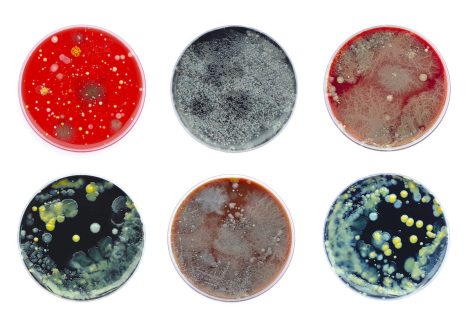
In recent decades, the world has been confronted with the accelerated emergence of antimicrobial resistance (AMR) due to the overuse and misuse of antimicrobial agents. The considerable emergence and spread of antimicrobial resistant organisms has posed an extraordinary threat to human, animal and ecosystem health. The urgent interventions are required to fight against this AMR crisis, otherwise the antimicrobial agents as a global public good will no longer be effective to treat animal diseases, protect human health, and guarantee food safety.
The WHO in close collaboration with its tripartite partners, the OIE and FAO, in 2015 developed the “Global Action Plan on AMR” which serves as framework for Member Countries to develop their national action plan to combat AMR. The Global Action Plan emphasises the importance of the OIE’s intergovernmental standards and recognizes an effective “One Health” approach to address the challenge of AMR. Within this framework and under the tripartite collaboration, the OIE has taken the lead to build and maintain a global database on the use of antimicrobial agents in animals.
The OIE Strategy on AMR and the Prudent Use of Antimicrobials was developed in line with the Global Action Plan. It outlines the goals and tactics the OIE have in place to support Member Countries in fighting against AMR and to encourage national ownership and implementation. The OIE has set the development of a global database on the use of antimicrobials in animals as a priority and likewise included it in the OIE Strategy on AMR.
Since 2015, the OIE has requested Member Countries to complete the OIE template provided each year for the collection of data on antimicrobial agents intended for use in animals, then analysing the submitted data and publish the results in the OIE annual report on antimicrobial agents intended for use in animals. The project will allow countries, regions and the global community to establish baseline information using a harmonized approach, to measure trends over time and to evaluate actions taken to ensure responsible and prudent use of antimicrobial agents.
As the information on antimicrobial use (AMU) in animals is essential to identify possible risk factors that could lead to the development and spread of AMR in animals, the National Action Plans on AMR always include the activities on monitoring of AMU in animals. However, some barriers have been identified by Member Countries in collecting quantitative data on antimicrobials due to a lack of regulatory framework, cooperation between national authorities and with private sector and tools and human resources.
In this regard, to support countries improve their monitoring of AMU in animals, the OIE will organise an in-country Workshop on Monitoring of the Quantities and Usage Patterns of Antimicrobial Agents Used in Animals. The Workshop will include a half-day pre-workshop meeting for the regulatory authorities to map the sources of supply chain of antimicrobial agents intended for use in animals.
Objectives
Objectives
Dates: 7-8 July 2019
Location: Dhaka, Bangladesh
Participation:
Pre-workshop meeting
20 participants comprising representatives from Ministry of Agriculture (i.e. Veterinary Authority, Department of Fisheries, Department of Wildlife, Department of Agriculture, etc.), Ministry of Health, Department of Customs, OIE National Focal Point for Veterinary Products, FAO, OIE, WHO, etc.
One Health Workshop on Monitoring of the Usage Patterns of Antimicrobial Agents used in Animals
50 participants comprising representatives from Ministry of Agriculture (i.e. Veterinary Authority, Department of Fisheries, Department of Wildlife, Department of Agriculture, etc.), Ministry of Health, Department of Customs and relevant stakeholders i.e. private veterinary sector, livestock association, veterinary products association, feed association, fisheries and aquaculture association, veterinary paraprofessional association, veterinary education establishments, National One-health Secretariat, the OIE National Focal Point for Veterinary products, FAO, OIE, WHO, etc.

